Hello there! It's Marsha CPDT-KA, and I'm excited to bring you a special article this week inspired by Ca$h, one of our extraordinary Off Leash clients who recently underwent surgery on his elbows. Despite the challenges he faces during his recovery, Ca$h's mom reports that he's maintaining a positive attitude. However, this presents the question of how to keep him content and entertained while his activity is restricted. We understand that the recovery period can be demanding for both our canine companions and their human parents. That's why we're here to provide you with valuable tips to ensure a successful and enjoyable rehabilitation journey. In honor of Ca$h and his remarkable spirit, we have compiled practical advice to help dog parents keep pups happy, stimulated, and engaged throughout their recovery, even when their activity is limited.
Mental Stimulation
When your dog's physical activity is limited due to surgery or injury, it's essential to recognize the significance of mental stimulation in their recovery process. Just as physical exercise keeps dogs physically fit, mental exercise plays a crucial role in maintaining their overall well-being. Mental stimulation not only helps prevent boredom but also provides a constructive outlet for their energy. Engaging their mind through various activities and games will help keep their spirits high, promote cognitive health, and contribute to a more positive recovery experience. By focusing on mental stimulation, you can ensure that your dog remains mentally sharp and fulfilled during their rehabilitation journey.
Puzzle Toys:
During your dog's recovery period, a variety of interactive toys can help keep them mentally stimulated and entertained. Puzzle toys, such as treat-dispensing ones, are perfect for engaging their problem-solving skills. These toys require your dog to figure out how to release the treats hidden inside, providing a rewarding challenge that keeps their minds occupied. Stuffed Kongs are another popular option, allowing you to fill them with tasty treats or even frozen goodies, providing a long-lasting and engaging chewing experience. Benebones are durable chew toys that offer a satisfying outlet for your dog's chewing needs, promoting dental health and reducing anxiety. By incorporating puzzle toys, stuffed Kongs, and Benebones into your dog's recovery routine, you'll keep them mentally engaged, entertained, and promote healthy behaviors.
Training Sessions:
Training sessions are a valuable way to keep your dog mentally engaged and their mind sharp, even during their recovery period with limited physical activity. Focus on commands and tricks that don't require excessive physical exertion to ensure their comfort. Reinforce existing commands such as "sit" and "stay" to improve impulse control and maintain obedience. Teach them new tricks like nose targeting, where they touch their nose to your hand or a target object, promoting focus and mental stimulation. Another useful command is "leave it," which encourages your dog to resist the temptation of grabbing items they shouldn't have. Additionally, practicing "shake" where your dog offers their paw for a gentle shake is a low-impact trick that enhances their bond with you. With these exercises, you can provide mental stimulation, strengthen your dog's training foundation, and ensure their recovery period is both productive and enjoyable.
Scent Games:
Scent games are a fantastic way to engage your dog's exceptional sense of smell and provide them with mental and olfactory stimulation, especially when their physical activity is limited. Hide treats around the house or in a snuffle mat, and encourage your dog to use their nose to locate them. This game taps into their natural instincts and provides a rewarding challenge as they follow the scent trails to discover hidden treasures. Not only does this activity keep their minds engaged, but it also allows them to exercise their noses, which is highly enriching for them. Scent games provide mental stimulation, promote problem-solving skills, and satisfy their instinctual drive to sniff and search. It's a fun and interactive way to keep your dog entertained and mentally sharp during their recovery period, ensuring they have a fulfilling and enjoyable experience.
Rotate Toys:
Rotating your dog's toys regularly is a simple yet effective strategy to prevent boredom and maintain their interest in their toys. Dogs can quickly lose enthusiasm for toys that are constantly available to them. By rotating their toys every few days, you create a sense of novelty and excitement as they "rediscover" toys they haven't seen in a while. This keeps their interest piqued and ensures that their playtime remains engaging and stimulating. Additionally, rotating toys helps to extend the lifespan of the toys, as they are not constantly in use, reducing wear and tear. By offering a variety of toys in rotation, you provide your dog with a fresh and exciting play experience, keeping them entertained and content during their recovery period.
Enriching Environments
Creating a stimulating environment for your recovering dog is essential to prevent boredom and ensure a happy recovery. An enriched environment offers mental and sensory stimulation, keeping your dog's mind engaged and preventing feelings of restlessness or frustration.
Music and Calming Sounds:
Music and calming sounds can have a profound impact on creating a soothing environment for your recovering dog. Playing gentle, calming music or nature sounds in the background can help create a sense of tranquility and relaxation. The soft melodies or rhythmic nature sounds have a therapeutic effect on dogs, helping to reduce stress and anxiety. The calming tones can help create a positive and peaceful atmosphere, promoting a sense of calmness during their recovery.
Going for Car Rides:
If your dog enjoys car rides and is medically cleared for travel, taking them for short and leisurely drives can be a delightful change of scenery. The sights, sounds, and new smells during a car ride can provide mental stimulation and excitement for your recovering dog. Ensure that your dog is safely secured in a well-ventilated crate or secured with a doggy seat belt for their safety and comfort during the ride. This simple outing can offer a refreshing experience and a temporary escape from the confines of home.
Hanging Out Outside:
If the weather permits and your dog's recovery allows for it, spending time outside in a secure and supervised area can be highly beneficial. The fresh air, different scents, and the opportunity to observe nature can be enriching for your dog's senses. Set up a comfortable spot for them to relax, such as a cozy bed or mat in a shaded area. Ensure that they are protected from extreme temperatures and have access to fresh water. Supervise them closely to prevent any strenuous activities or accidental injury. Spending quality time outdoors allows your dog to engage with their surroundings and enjoy the simple pleasures of being outside.
Window Views:
Positioning your dog's bed or resting area near a window can offer them a delightful and entertaining view of the outside world. By providing them with a window view, they can observe the activities of the surrounding environment, such as passersby, birds, or squirrels. This simple adjustment not only allows them to indulge their natural curiosity but also provides valuable mental stimulation. Watching the hustle and bustle of the outside world can be an engaging experience for your dog, offering a variety of sights and sounds to captivate their attention. This visual and auditory stimulation helps keep their minds active and provides a source of entertainment during their recovery. However, it is important to exercise caution if your dog tends to be reactive or easily agitated by the activity outside the window. Some dogs may become overly excited, anxious, or reactive towards passersby, birds, or squirrels they observe. This can elevate their stress levels and hinder their recovery process. If your dog displays reactive behavior, it may be best to provide a partially obstructed view or choose a window with views of less triggering activity, like a view of the backyard instead of a view of the street. Prioritize your dog's well-being and create a calming environment that promotes relaxation during their recovery period.
Social Interaction
While your dog's physical activity may be limited during their recovery, social interaction remains essential for their overall well-being. Dogs are social creatures and thrive on companionship and human interaction. Even if they cannot engage in vigorous play or exercise, spending quality time with your dog through affectionate gestures, gentle petting, and verbal praise can go a long way in keeping them happy and content. Your presence and attention provide a sense of comfort and security during their recovery period.
Family Time:
During your dog's recovery period, encouraging family members to spend quality time with them is invaluable. Family time offers an opportunity for your dog to feel loved, supported, and connected to their human pack. Encourage family members to provide affection, gentle petting, and verbal praise to your dog. These simple acts of love and attention can go a long way in boosting their spirits and overall well-being. Physical touch, such as gentle stroking or cuddling, helps to promote relaxation and reduce stress. Verbal praise and kind words not only communicate your dog's importance and worth but also serve as positive reinforcement for good behavior. Family members engaging with your dog also strengthens the bond between them, deepening the sense of trust and companionship. By actively involving family members in spending quality time with your recovering dog, you create a supportive and loving environment that enhances their recovery journey and contributes to their happiness and well-being.
Dog Friends:
If you have multiple dogs in your home, allowing them time together can be a valuable source of social interaction and companionship during your dog's recovery. Dogs are pack animals by nature, and spending time with their dog friends can help alleviate boredom and provide emotional support. However, it's important to consider the dynamics between the dogs and their individual recovery needs. Ensure that all dogs are well-behaved, calm, and comfortable with each other. Supervise their interactions to prevent any rough play or excessive physical activity that could impede the recovery process. If all dogs get along well and have similar energy levels, supervised play sessions can be a wonderful outlet for socialization, mental stimulation, and exercise in a controlled manner. The presence of other dogs can provide a sense of normalcy and emotional well-being for your recovering dog, as they engage in appropriate social behaviors and share companionship. Remember to prioritize your dog's recovery needs and monitor their interactions to ensure a positive and safe experience for all dogs involved.
When your dog is in recovery, it's important to provide them with the love and support they need to heal and stay happy. By offering mental stimulation, interactive toys, an enriching environment, and social interaction, you can make their recovery period a positive and rewarding experience. Remember to be patient, show them love, and give them the attention they deserve. With your care and these helpful tips, your dog will be on the road to a speedy recovery in no time, just like Ca$h.

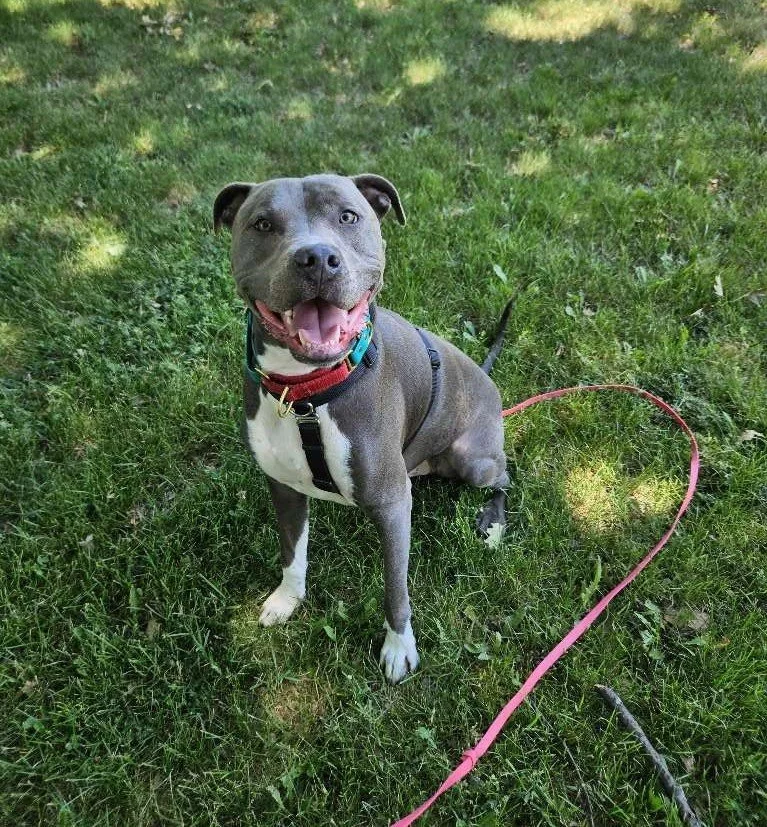
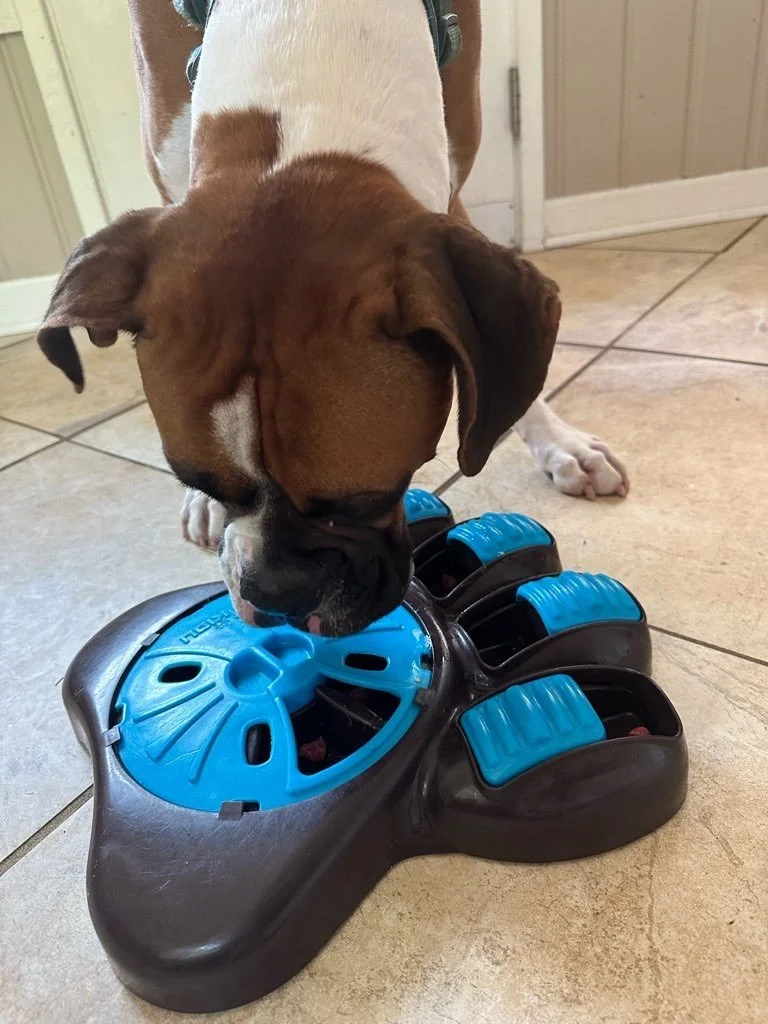
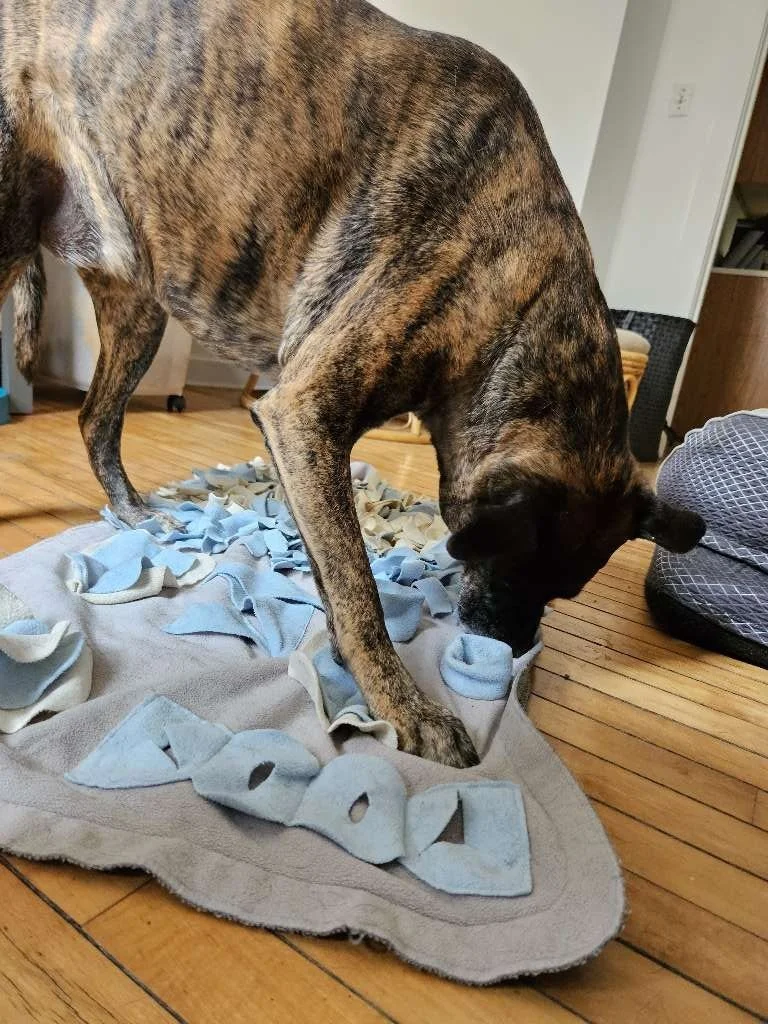
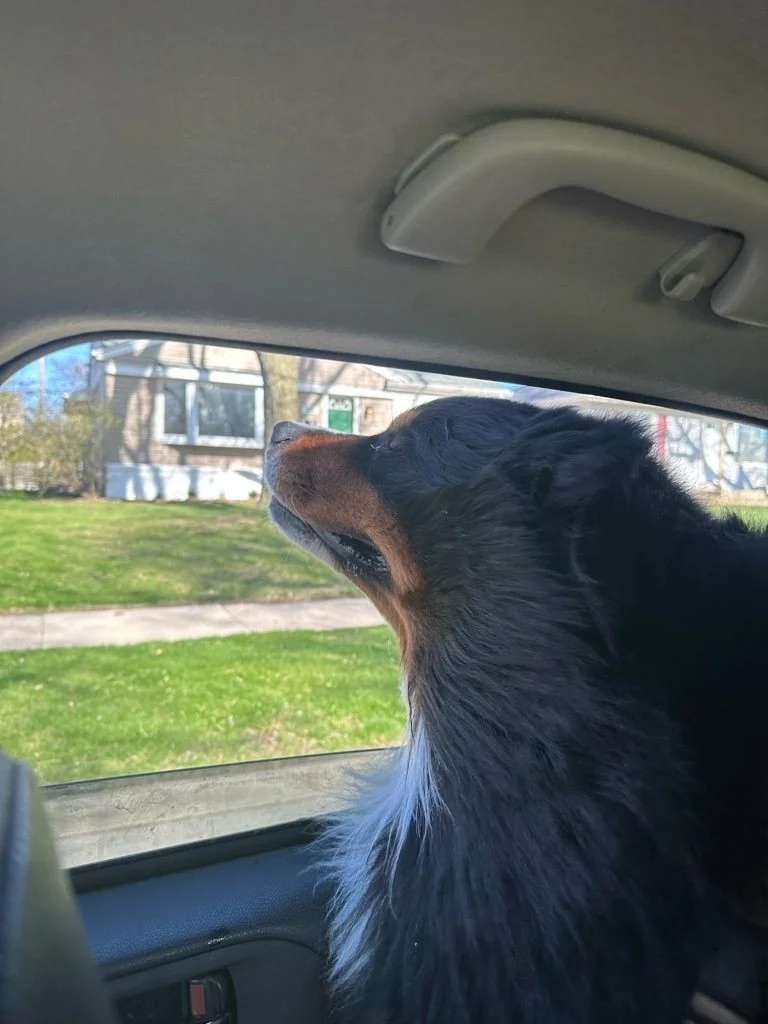
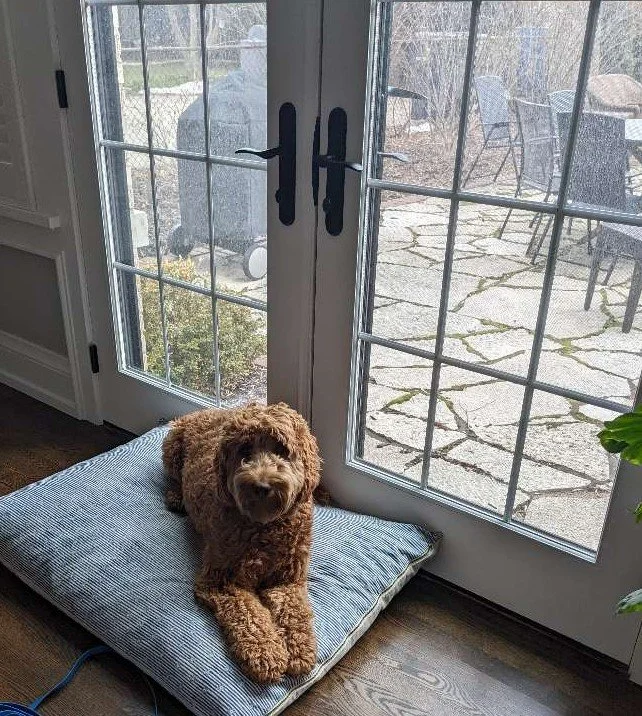
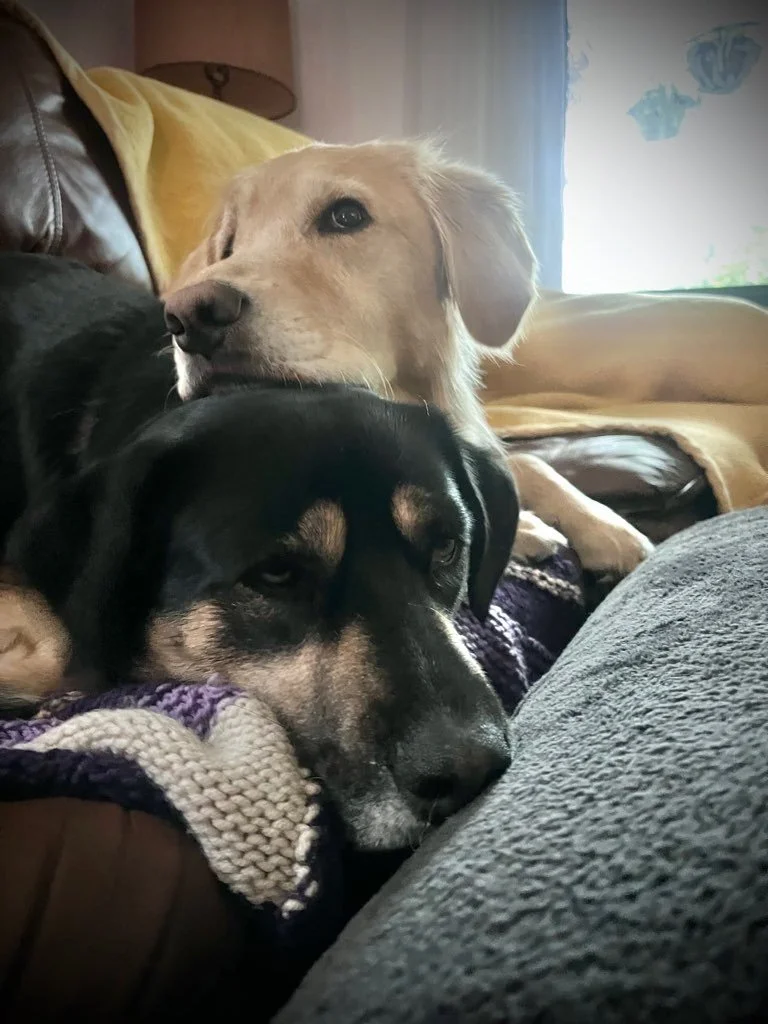
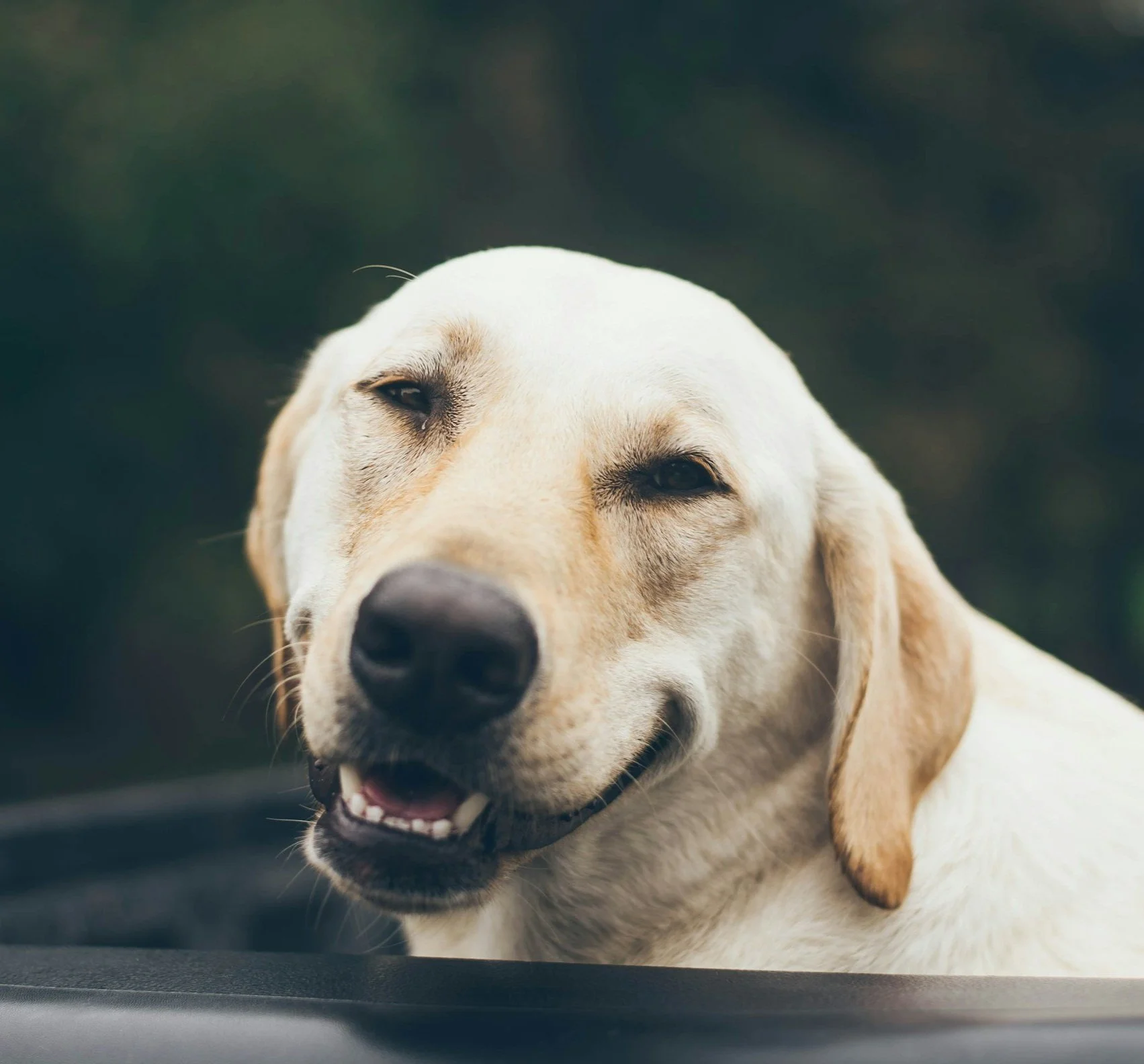

At Off Leash MKE, we believe in creating the perfect environment for dogs to thrive – whether it’s through enriching activities, structured relaxation, or even the right soundtrack! That’s why we’re thrilled to introduce Off Leash Retreat Radio on Spotify: a curated collection of dog-friendly music designed to soothe, energize, and delight our four-legged friends (and their humans, too!).